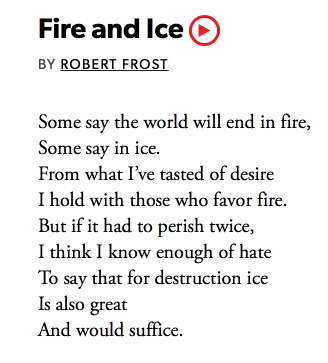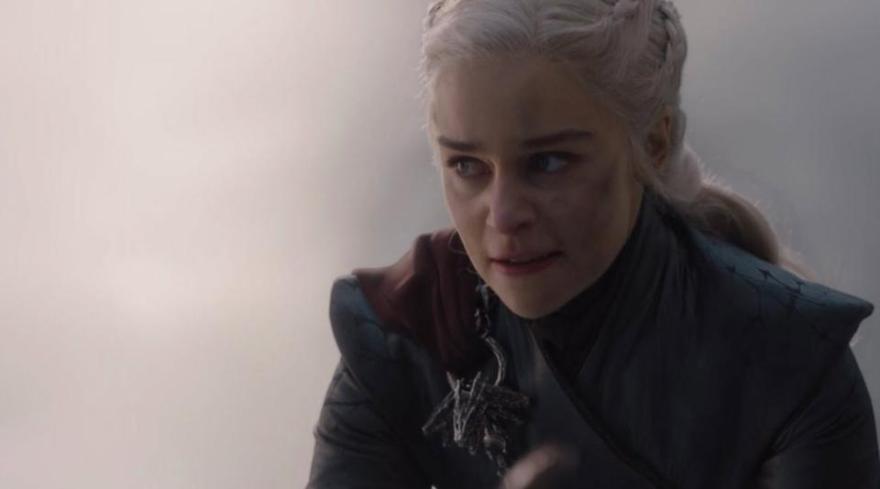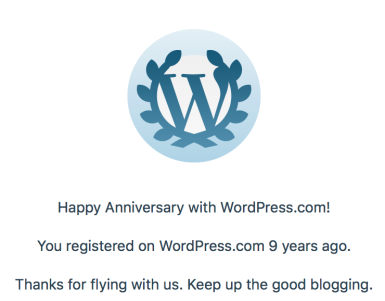I’ve been wanting to write this post for a while. Ever since I wrote that first one letting you know I live with depression, in fact. In the past few months, I’ve been using this platform to push myself to be more expressive and more honestly reflective about the conditions of my life. This phenomenon emerged by accident but is now turning into a deliberate practice. It is refreshing and sometimes nerve-wrecking to tell the truth in exactly those words. In fact, the morning after my last post (the open letter), I woke up feeling upset at and uncomfortable with myself and my decisions. However, I went to a class today that is always challenging and always teaches me a lot both, about research and about myself. After that class, as I walked home and watched a gorgeous golden sun set against a clear blue sky, I felt something I had heard before: learning is an uncomfortable feeling. In the process of expressing and exposing my thoughts to the world, I learn things about myself and they make me uncomfortable and my mind decides that what makes me uncomfortable must be avoided because it is wrong. Expressing that discomfort to the world becomes hard because I am trying to say things that people don’t always openly say. There is a desire to tuck away the uncomfortable and focus on what is acceptable. But that won’t do anymore. I enjoy writing and I have things to say, ergo I must say them. I try to remember that these waves and waves of emotion that wash over me can erode my shore, but not my core. And so, it is okay to be mindful of the emotions, and yet not feel washed away.
This is part 2 of a series on depression.
In September 2016, I knew I couldn’t go on the way I was for much longer, and so it was the first time I went to see a counselor. I remember the day I decided I couldn’t do it anymore, I couldn’t not go, because I was afraid of what would happen if I didn’t. And so I went. But I didn’t know what to expect. I was randomly assigned to a counselor and I didn’t know it then (although she did), but she was a really good fit for me. We were well in sync for some reason.
Those first few sessions were mostly tears and a partial sense of release: it was good to have a stranger obligated to listen to you without judgement and without fear of the things you said trickling along a grapevine to others who might judge you. Once she had heard my first stories, the real work began. She told me (and I paraphrase);
‘It’s going to be hard, and it’s going to be a learning curve because we are working on breaking years of ingrained patterns of thinking in your head.’
I was amazed by what we found as we started mining my brain for the ways in which I thought and functioned. Things that people had said to me, the relationships I had had (romantic and otherwise), events and accidents that had transpired and the responses of my mind and body had all created loops of thinking that I was largely unconscious of but that affected me negatively on a day-to-day basis in the ways I thought and talked and behaved.
With time, work and design, we started to see cracks in those patterns and we used those cracks to break the loops of thinking and insert healthier triggers so that the negative loops could turn into positive ones. The tricks my counselor taught me worked to a degree, until they didn’t.
‘That’s normal’, she told me when I said that I wasn’t seeing as much progress as I had in the beginning. She said there was some research into how counseling showed great results for new patients but the progress curve seemed to flatten out over time (although I’ve never looked into it personally). ‘But’ she added, ‘you might also want to go and see a doctor.’
She had been asking me to do that for months and I had never felt confident making the leap from counseling to medication as I had making the one from nothing to the counseling. However, she had an instrument that detected what I think is a much less commonly-known ailment, which, I have since realized from talking to some of the women in my life, isn’t as uncommon as it seems: PMDD or Pre-Menstrual Dysphoric Disorder, the darker twin of the better known and sometimes joked about PMS.
And so, in April 2017, I shifted to a small dose of anti-depressant, followed by a gradient increase in August 2017, and it was only after that, that I began to feel “normal”, which brings me to the theme I wanted to address in this post:
What do you do once your depression is under control?
It took a while for that initial relief of not longer having to live in dread for two to three weeks of the month to wear off. I was so excited to experience a much flatter mood line that I didn’t notice right away that not everything was okay. But once it started hitting me, I spoke to a friend who told me that those negative patterns I had mentioned earlier? Yeah, they don’t just magically go away when you switch to medicine.
From how I understand it, there is enough controversy about the effectiveness of medication versus other ‘natural’ remedies to fill books and blogs and websites. I have tried and continue to try experimenting with a number of different techniques, none of which are foolproof. For me, once I was on the medication, I realized that my brain and body had the energy and the capacity to see life more clearly and concretely than as just an endless expanse of pointless nothingness. In fact, my PMDD was getting worse and worse until I started the medicine, which probably meant that without the grace 1-1.5 weeks in the middle, I don’t know how I was even dragging myself out of bed every morning (I forgot to explain that PMDD is this miraculously blessed form of depression that mysteriously affects women for only about half their period cycle, leaving you feeling “normal”-for the most part- the rest of the month). Once I could see my life more clearly and with some form of consistent optimism however, I was in a better condition to take note of the things that still weren’t working.
The negative thought patterns were my biggest enemy. A book that I am currently reading and trying to process for a class on well-being (see reference below) suggests that emerging empirical research in positive psychology fits in well with the idea of something called Positive Causal Networks or clusters of emotions, attitudes, behaviors, traits and accomplishments that co-occur and make people happy and/or determine their wellbeing in some other ways. Such causal networks can also be negative, I suspect, although Bishop (2015) is not really wedded to that idea. The science is still young here but at least parts of what the book describes makes perfect sense to my personal life. Causal networks are persistent and its elements reinforce each other. The medicine alone would not break them because they include all these other things: emotions, attitudes, behaviors, traits, accomplishments that are cheering each other on, and that the medicine, in all its biochemical glory cannot completely control. And so, I imagine a rocky ride from a sustainable negative to an equally sustainable positive causal network, which will consist of changing all these different elements, many of which are so deeply ingrained in one’s day-to-day life that you might not even know they’re harmful for you. I’m not there yet. I don’t know if I can get there. Maybe the best I can do in my lifetime is change fragments of the negative causal networks into fragments of positive ones. Perhaps, I can flip an entire network. Who knows!
These socio-psychological factors are also interrupted by the hormonal fluctuations and physical manifestations of health issues, creating a cocktail of factors that often require close attention and management to keep the ill-effects at bay. Bishop (2015) isn’t too convinced by the genetic component here- how much of our wellbeing and PCNs are actually affected by our genes or in other words, how much control do we really have in changing things?
And while that challenge can be intense at times, it is rewarding because- well it keeps depression under control. But it also teaches me about patience and perseverance and optimism and the cultivation of indifference. Most importantly, the ability to divorce myself from these causal networks (or whatever they are) even briefly through the acts of writing or interpretation or analyzing are strangely liberating at times because I don’t always have to be subjectively embroiled within my circumstances 24×7. I can take a step back and research my own reaction.
What I wanted to say was that the shadow of depression lingers even as the day wears out. There is no magic pill but there is a tunnel. Sometimes it bends and you may step into a puddle and get your leg all wet and muddy. I can’t even promise that there is an end to the tunnel but if you trudge along for long enough, you might just find it worth your while!
Reference:
Bishop, M.A. (2015). The Good Life: Unifying the Philosophy and Psychology of Well-Being. Oxford University Press.



